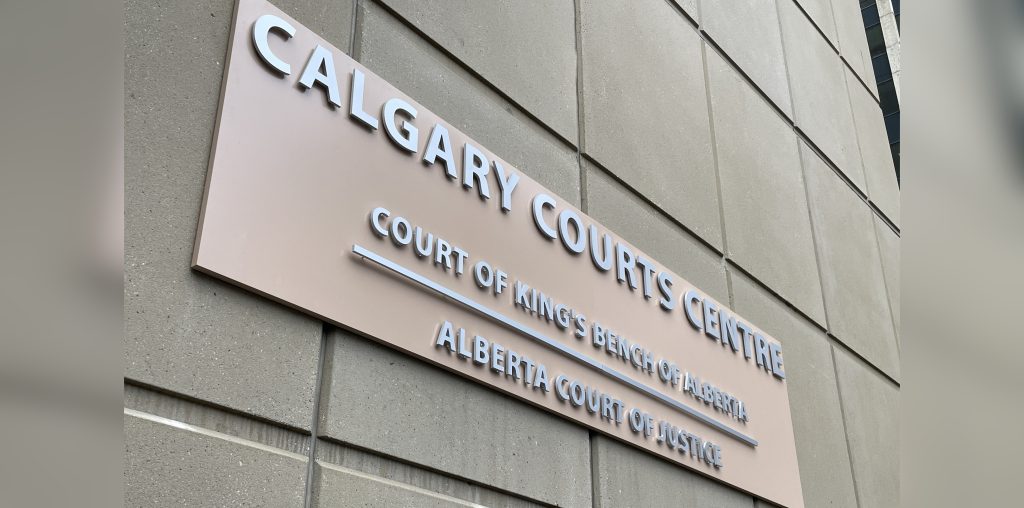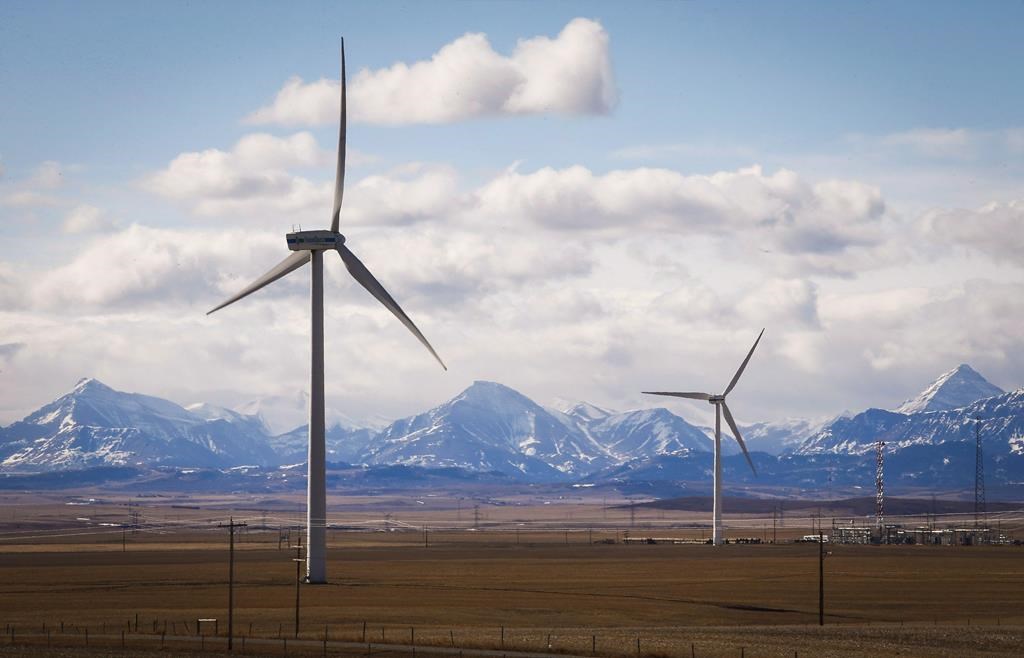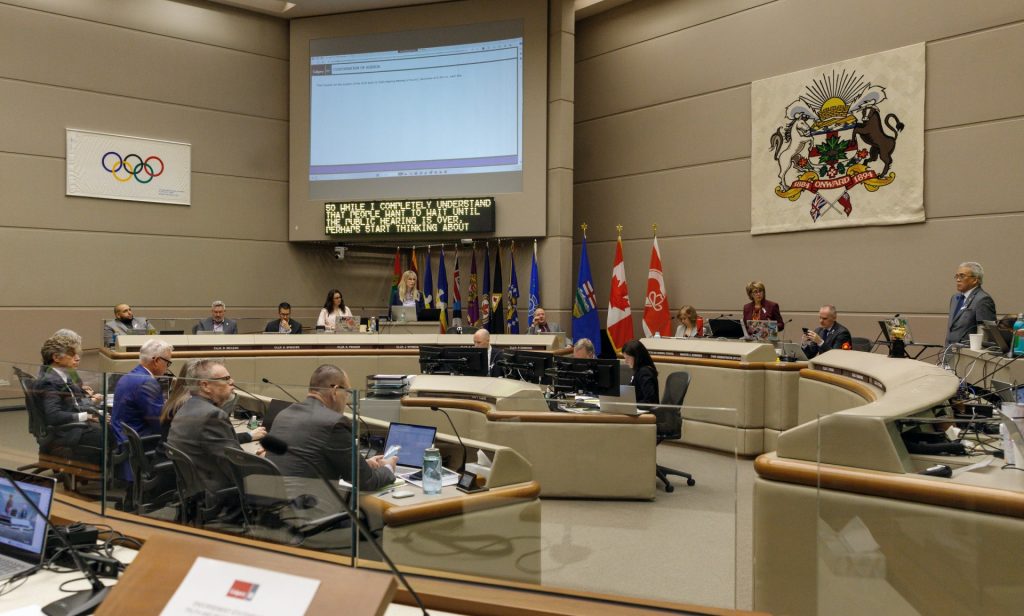‘Harassing people with police escorts’: Councillors want tougher action on anti-maskers
Posted May 3, 2021 11:11 am.
Last Updated May 3, 2021 3:40 pm.
CALGARY (660 NEWS) — With seemingly no end in sight to this third wave of COVID-19 in Alberta, there’s also no end in sight for continued demonstrations opposing the health restrictions that are in place.
This past weekend saw more protests from anti-maskers, including a march down 17 Ave. in Calgary and a two-day rodeo outside the central Alberta town of Bowden. It is unclear if any tickets were handed out in Calgary, and while RCMP attended the rodeos near Bowden, no action was taken to shut them down as hundreds attended.
While hearing from the chair of the Calgary Police Commission at City Hall on Monday, Ward 8 Councillor Evan Woolley said he is fed up.
“They’re walking down the streets, harassing people, with police escorts,” he said. “I think there is a deep frustration.”
In response to the concerns being highlighted yet again, Mayor Naheed Nenshi said a meeting of the Emergency Management Committee would be called to address the issue and figure if further action could be taken.
Chair Bonita Croft was asked if the commission — a civilian-led oversight body that helps provide governance for the Calgary Police Service — is taking a stance on this issue and pushing for changes.
But she said their hands are tied due to limited enforcement powers.
“The means of enforcing the health orders are really limited,” she said. “We absolutely share your frustrations.”
Police have said numerous times they are caught in a challenging position, maintaining Charter rights for free expression while also protecting the public and issuing tickets or fines when people break some of the rules.
As of Apr. 29, 383 violation tickets had been issued for people failing to wear a face covering where required since Aug. 1, 2020, with 22 of those tickets coming since Apr. 22. In addition, there have been 213 tickets issued under the Public Health Act since last November, but none of them were written in the past week.
Nenshi added on that it is possible the Crown Prosecution Service is playing a role in this perceived lack of enforcement, telling council he has heard that tickets are being tossed out when challenged.
“And if the rumours that I’ve heard, that the Crown is actually reaching out to the police and saying ‘we’re very busy, the court systems are backed up, please slow down on issuing these tickets’ are true, that makes me even more frustrated,” he said. “I’m calling publicly to the Crown and to the court system to show some accountability here, and to ensure that people who are flagrantly putting others at risk are not treated with kid gloves by the court system.
“We need to do much, much better.”
In response to these claims, a spokesperson for the Minister of Justice said the Alberta Crown Prosecution Service (ACPS) “has made no request to any police service or to Public Health Act investigators to stop issuing such violation tickets.”
But a large amount of tickets have been withdrawn, as the statement added that 40 per cent of tickets issued between Mar. 1, 2020 and Mar. 31, 2021 have been tossed out. A total of 576 tickets issued under the Public Health Act have been issued in that timeframe, with 38 per cent remaining before the courts. Out of the remaining tickets, 12 per cent resulted in conviction or were paid before going to court, and 10 per cent were “quashed” or otherwise resolved in court.
“There is no policy or decision to systematically withdraw such violation tickets; all such tickets are being assessed in the same way that other Criminal Code offences and provincial offences are assessed using the ACPS standard for prosecution: there must be a reasonable likelihood of conviction and there must exist a public interest in the prosecution,” the statement read.
Meanwhile, Nenshi still encouraged people to file police reports when they see people breaking the law. But Woolley wondered if this is a futile exercise, after telling about a woman who was targeted by hate groups on Calgary Transit and felt unsafe.
“Why would someone go and file a police report when all of these activities are happening right in front of the police? To many, the police are standing by and not doing anything.”
Nenshi said there’s too much talk from people who think the rules do not apply to them, and at some point there has to be more options available. He said he recently spoke to Chief Constable Mark Neufeld and raised a question about what the response would be if different groups of people were doing the same thing.
“A few years ago, if we had anti-globalism protestors acting this way or if we had anti-racist activists acting this way, I suspect we’d see riot shields and water cannons and tear gas. The chief calmed me down very nicely and said that didn’t work then either,” he said.
Croft said this is all made more difficult by the fact nothing seems to stop people from following even the most modest of measures that are in place.
“(Police) are putting significant resources into managing the protests, attending these events, doing their best to enforce the health orders and the response is to continue violating them.”
When asked on Friday if the provincial government intends to do anything more to provide further powers to police, a spokesperson for Justice Minister Kaycee Madu repeated an often used position that the government cannot tell police what to do.
“All police services in Alberta operate independently from the provincial government,” read the statement from Blaise Boehmer. “The provincial government respects the operational decision-making authority of Alberta’s police services to conduct enforcement in a manner that balances public safety, the law and public interest.
“In addition, community peace officers have the option to opt out from being granted these enhanced authorities. In addition, municipal bylaws related to the COVID-19 pandemic remain in effect at this time, which can be enforced by community peace officers and bylaw officers.”










